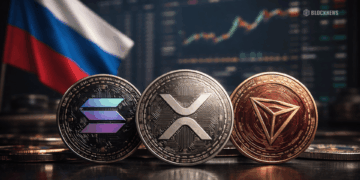- Blockchain improves supply chain visibility and accountability: It creates a secure, shared record of product movement, allowing businesses to track goods and ensure their authenticity. This combats fraud, inefficiency, and lack of transparency.
- Real-world examples showcase its benefits: Platforms like IBM Food Trust enable olive oil traceability, while TradeLens streamlines international shipping by digitizing documents and data. Both enhance consumer trust and operational efficiency.
- Challenges remain for widespread adoption: Data accuracy within the system and collaboration among competitors in complex supply chains are key hurdles that need to be addressed.
credit: techment
As many of you well know, blockchain technology is rapidly transforming the supply chain management sector by providing a secure, transparent, and traceable way to monitor product flows. As a distributed ledger, blockchain records data in real-time across various nodes in the network, making it easier for businesses to monitor product flows and ensure authenticity. In this article, we shed light on ways how this technology improves visibility and accountability, helping businesses combat issues like fraud, inefficiency, and lack of transparency.
From Grove to Table
One notable application is IBM’s Food Trust platform, which allows consumers to trace olive oil from grove to table. By simply scanning a QR code, customers can verify the origin, production process, and quality of the product. This has not only boosted consumer confidence but also enabled businesses to meet rising demands for traceability, particularly during the supply chain disruptions of the 2020 pandemic.
In global shipping, TradeLens, a collaboration between IBM and Maersk, is digitizing international logistics. By bringing together over 100 organizations, including Dow Chemical and DuPont, TradeLens streamlines the exchange of shipping documents and real-time data. This eliminates paperwork, reduces delays, and ensures that all parties involved have access to the same verified information, significantly improving operational efficiency.
High Value Supply Chains
Blockchain is also making strides in high-value and sensitive supply chains like medical and cold chain logistics. The technology’s ability to monitor the entire lifecycle of temperature-sensitive products—such as vaccines and pharmaceuticals—helps businesses ensure that these products are stored and transported under the right conditions. This minimizes risks associated with improper handling, reducing spoilage and waste.
credit: marketbusinessnews
The Data Accuracy Dilemma
However, despite its promise, blockchain adoption faces challenges. One of the primary hurdles is data accuracy. While blockchain ensures transparency, the system is only as reliable as the data entered into it. In complex, multi-stakeholder supply chains, maintaining data integrity remains a significant issue. Moreover, achieving widespread adoption depends on collaboration between competitors, which is an obstacle in industries where sharing data is often met with reluctance.
credit: hbr.org
Conclusion
Blockchain technology is reshaping supply chain management with its transparency, security, and traceability benefits. Projects like IBM Food Trust and TradeLens show its potential to improve authenticity and streamline logistics. However, overcoming challenges around data integrity and stakeholder collaboration will be critical to unlocking blockchain’s full potential in global supply chains.














